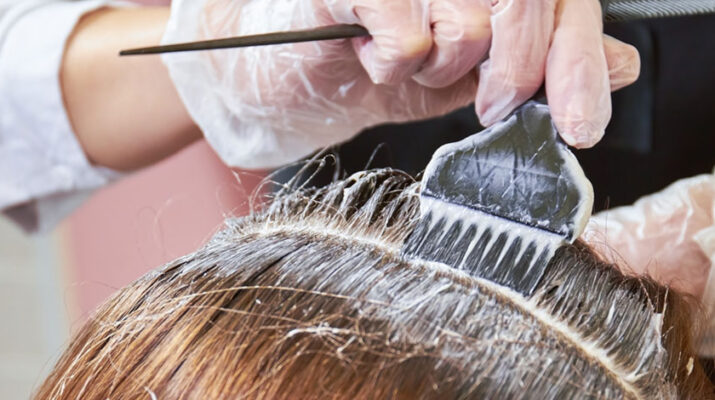Deborah Jeanne Sergeant
A new study published by BMJ indicates that permanent hair color does not increase risk of most cancers and only slightly elevates risk of a few.
For 36 years, the study followed 117,200 women in Boston who did not have cancer at the beginning of the study.
The women who used hair dye did not show an increase of cancers of the bladder, brain, colon, kidney, lung, blood and immune system nor those effecting the skin or breast.
Only slight risk of basal cell carcinoma of the skin was seen in women with naturally light hair.
Certain breast cancers also showed a slight risk in correlation with the amount of dye exposure.
Risk for Hodgkin lymphoma increased for women with naturally dark hair.
The research is limited because it mainly included white women of European origin and no men, although only 10% of men use hair color.
The study also was not conducted as scientifically as possible because some of the women stopped and restarted using color or may have misclassified their coloring product as permanent when it was temporary.
Still, the research does not indicate a marked elevation of risk, which should be a relief for the scores of those turning to bottles of dye to maintain their look while at home during the pandemic.
At press time, Monroe County-area salons were shutting down services and providing only curbside pick-up of any products purchased by customers.
“It’s not clear how much personal hair dye use might raise cancer risk, if at all,” said Jason Coleman, Cancer Control Strategic Partnerships manager for American Cancer Society throughout Upstate New York. “Most studies done so far have not found a strong link, but more studies are needed to help clarify this issue.
“If someone is still concerned about hair dye safety, they can embrace their natural hair color or try some of the newer hair dye products that are vegetable-based. These products may have some drawbacks, such as not being able to change hair color drastically or having the color fade sooner than is seen with permanent dyes unless they contain some of the same ingredients as the permanent dyes.”
There is also a difference between home color available at stores and color used at salons by professionals such as Scott Dennis, owner and founder of R Salon and Spa in Webster. He uses only natural Aveda products. The company’s hair color products are 93% to 99% naturally derived, depending on the shade. Similarly, Salon Lofts company ensures quality products that do not affect health. Therefore, it is important to get things done by the right hands.
“Metallic salts are the actual ingredients within hair color linked to cancer,” Dennis said. “Those haven’t been used in most professional hair color lines in over a decade. That’s why there’s not a link between professional hair color and cancer.”
Nonetheless, he sticks with natural products to avoid the chemicals in standard products.
Since the pandemic began, he has been working with clients to prepare custom hair coloring for curbside pick-up, along with printed instructions and links to YouTube tutorials so they can safely maintain their color at home. Dennis said he worked with the manufacturer to make sure his hair color kits are safe and effective; however, he does this only for existing customers so he can meet their specific needs.
“We worked with companies that worked on the formulation that would be safe to give them,” Dennis said. “Many salons have been doing that: creating hair color kits to go.”
He said that receiving coloring treatments from a professional helps minimize customer exposure, so those concerned about their hair color should see a stylist “as your safest bet. They know what they’re doing,” Dennis added.
Many of his clients chose not to color during the pandemic’s quarantine period and are growing out their gray.
At Studio A Hair Salon in Webster, owner Annalisa Termine said that few clients request natural products when they come in for coloring, though she thinks natural products are better for people.
“I have some clients that their scalp gets irritated so I buy some natural products for them,” Termine said. “I cannot pronounce half of the words in regular hair color. With natural stuff, their ingredients are less.”

